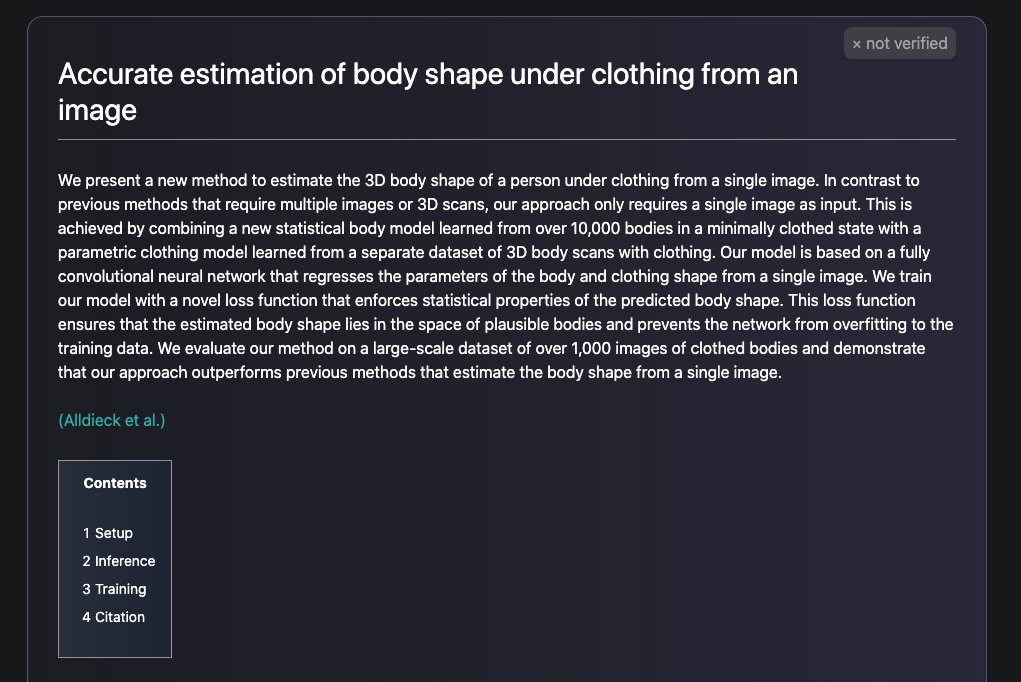
I repeat: Easily produced science text that's wrong does not advance science, improve science productivity, or make science more accessible. I like research on LLMs but the blind belief in their goodness does a disservice to them and science. Here is an example from #ChatGPT 1/5 

SMPL is actually short for Skinned Multi-Person Linear model. #SMPL is a popular 3D model of the body that's based on linear blend skinning with pose-corrective blend shapes. It's learned from 3D scans of people, making it accurate and compatible with rendering engines. 2/5 

Despite what #ChatGPT thinks, it wasn't developed at Berkeley or the MPI for Informatics. It was developed in the @PerceivingSys department of the @MPI_IS (the Max Planck Institute for Intelligent Systems). Run it again and you'll get different answers every time. 3/5
These sorts of errors *will* propagate. Users looking for a quick advantage will feel it's smart to use such tools. I think more effort should be spent on detecting incorrect or fake science - whether generated by a computer or a person. This would actually help science. 4/5
Side note: Using LLMs to generate science text reveals just how little the current models actually understand about the world. With non-science text, it's easier to believe that they know a lot. One day, computers will do good science. Just not today. 5/5 smpl.is.tue.mpg.de
• • •
Missing some Tweet in this thread? You can try to
force a refresh






